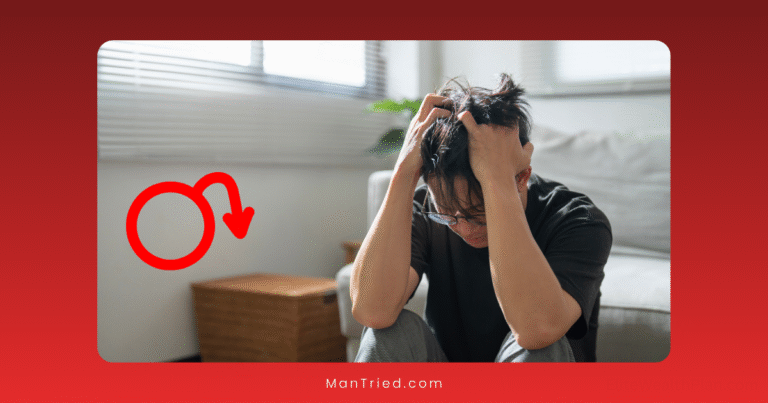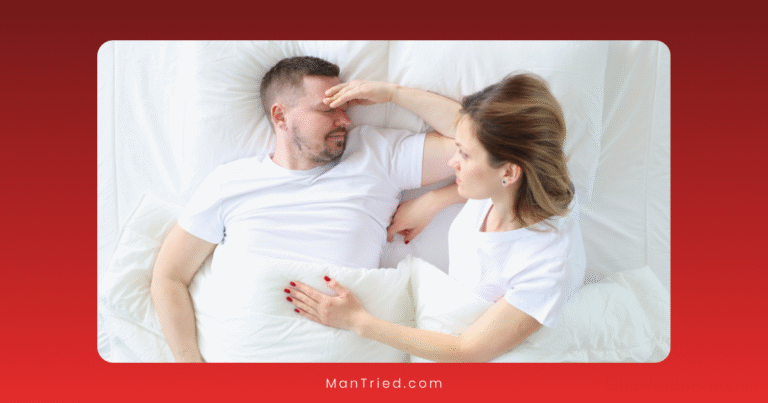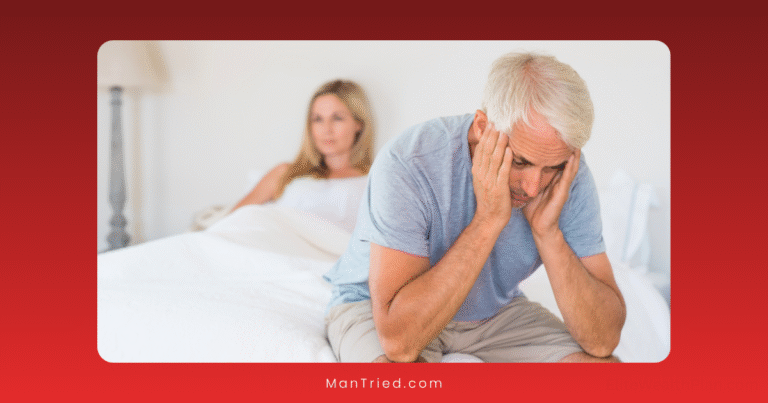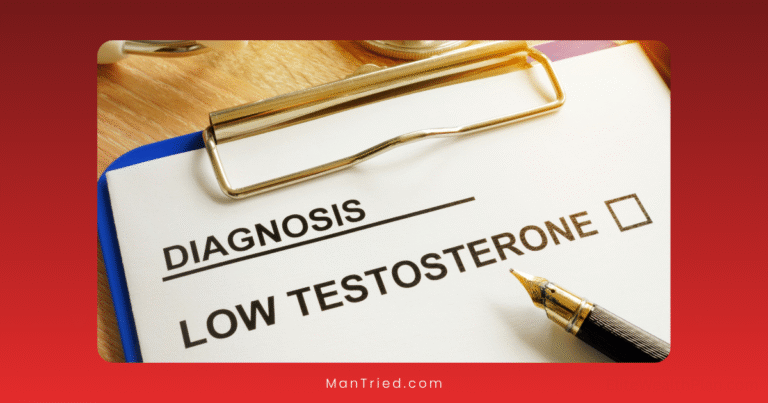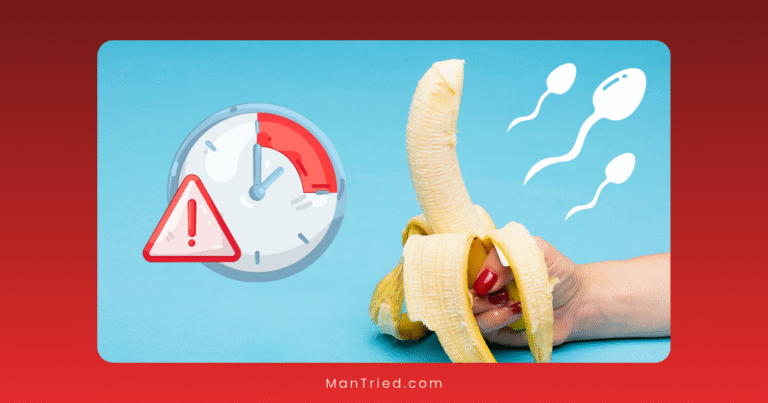When Desire Disappears: Medical vs. Psychological Causes of Low Libido
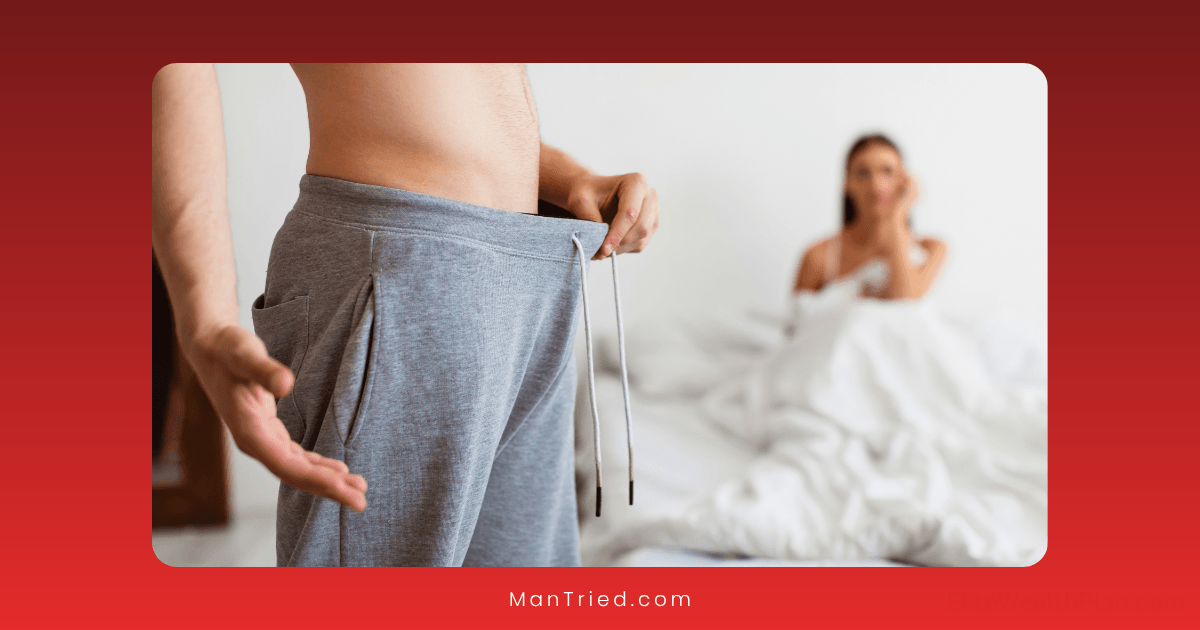
It’s a topic many men are reluctant to discuss, even with healthcare providers: the disappearance of sexual desire. Yet low libido affects up to one in five men at some point in their lives, making it one of the most common sexual health concerns. Understanding whether the root cause is medical, psychological, or a combination of both is crucial for finding effective solutions.
This comprehensive guide explores the complex interplay between physical and psychological factors that can diminish desire, helping men and their partners navigate this challenging but treatable issue.
Understanding Male Libido: A Complex System
Before diving into what goes wrong, it’s important to understand how male sexual desire normally functions. Libido isn’t controlled by a single factor but rather emerges from the intricate interplay of:
- Hormonal factors: Testosterone and other hormones that fuel desire
- Neurological pathways: Brain circuits that process sexual stimuli and generate arousal
- Vascular health: Blood flow necessary for physical response
- Psychological elements: Thoughts, emotions, and mental state
- Relationship dynamics: Connection and communication with partners
- Cultural and social influences: Beliefs and expectations about sexuality
When any of these systems is disrupted, desire can diminish or disappear entirely. The challenge lies in determining which factors are at play in each individual case.
Medical Causes of Low Libido in Men
Physical health issues are often overlooked as potential causes of low desire. According to the Cleveland Clinic, several medical conditions can significantly impact libido:
Hormonal Imbalances
Low Testosterone
Testosterone is the primary hormone driving male sexual desire. Levels naturally decline with age—typically by 1-2% annually after age 30—but can drop more dramatically due to various conditions.
CMH Research Institute notes that testosterone levels below 300 ng/dL are generally considered low, with the American Urological Association requiring two separate tests below this threshold to confirm a diagnosis of low testosterone.
Symptoms of low testosterone beyond reduced libido include:
- Fatigue and low energy
- Reduced muscle mass and increased body fat
- Mood changes, including irritability and depression
- Decreased motivation and drive
- Cognitive changes such as brain fog
Thyroid Dysfunction
An underactive thyroid (hypothyroidism) can significantly reduce libido by:
- Decreasing energy levels
- Disrupting hormone balance
- Contributing to depression
- Causing weight gain
Elevated Prolactin
Hyperprolactinemia, a condition where the hormone prolactin is abnormally high, can suppress testosterone production and directly impact sexual desire. This condition can result from:
- Pituitary tumors
- Certain medications
- Kidney or liver disease
- Hypothyroidism
Chronic Health Conditions
Research published in PMC highlights several medical conditions strongly associated with decreased libido:
Cardiovascular Disease
Heart disease and related conditions affect libido through:
- Reduced blood flow to genital tissues
- Medications used to treat the condition
- Anxiety about sexual activity triggering cardiac events
- Fatigue and reduced exercise capacity
Diabetes
Diabetes impacts sexual function through multiple mechanisms:
- Nerve damage affecting sensation and response
- Blood vessel damage reducing genital blood flow
- Hormonal disruptions, including lower testosterone
- Psychological impact of managing a chronic condition
A 2023 study found that men with poorly controlled diabetes were three times more likely to report low sexual desire compared to those with well-managed blood sugar.
Sleep Disorders
Sleep apnea and other sleep disorders can dramatically reduce testosterone and libido:
- Severe sleep apnea can reduce testosterone levels by up to 40%
- Poor sleep quality disrupts hormone production
- Daytime fatigue reduces interest in sexual activity
- Sleep deprivation increases stress hormones that suppress testosterone
Obesity
Excess weight affects sexual desire through:
- Conversion of testosterone to estrogen in fat tissue
- Increased inflammation throughout the body
- Reduced physical stamina and self-image issues
- Associated conditions like diabetes and sleep apnea
Research shows that weight loss of even 10% can significantly boost testosterone levels and improve libido.
Medication Side Effects
Many commonly prescribed medications list reduced libido as a potential side effect:
Antidepressants
Selective Serotonin Reuptake Inhibitors (SSRIs) are notorious for sexual side effects:
- Up to 70% of patients on certain SSRIs report sexual dysfunction
- Effects can include both reduced desire and difficulty with arousal/orgasm
- Some antidepressants (like bupropion) have fewer sexual side effects
Blood Pressure Medications
Several classes of antihypertensives can impact sexual function:
- Beta-blockers are particularly associated with reduced libido
- ACE inhibitors and ARBs typically have fewer sexual side effects
- Diuretics can affect hormonal balance
Other Medications
Additional medications that may reduce desire include:
- Finasteride and dutasteride (for prostate enlargement or hair loss)
- Opioid pain medications
- Anti-seizure drugs
- Certain antihistamines
- Some chemotherapy agents
According to the Mayo Clinic Health System, it’s essential to review all medications with a healthcare provider if experiencing low libido, as alternatives with fewer sexual side effects often exist.
Lifestyle Factors with Physical Impact
Several lifestyle choices directly affect the body’s ability to produce and respond to sex hormones:
Alcohol Consumption
While small amounts of alcohol may initially reduce inhibitions, regular or excessive drinking:
- Reduces testosterone production
- Impairs nervous system function
- Can cause erectile difficulties
- May lead to dependency issues that further impact sexuality
Smoking
The study in PMC identified current cigarette smoking as a significant independent risk factor for severely decreased libido, with an odds ratio of 7.168—meaning smokers were over seven times more likely to experience severe libido problems.
Physical Activity Patterns
Both too little and too much exercise can impact libido:
- Sedentary lifestyle contributes to obesity and cardiovascular issues
- Extreme endurance training can temporarily lower testosterone
- Moderate exercise (3-4 times weekly) typically boosts sexual desire
Psychological Causes of Low Libido
Mental and emotional factors can be just as powerful as physical ones in diminishing desire. The NHS highlights several key psychological contributors:
Mental Health Conditions
Depression
Depression profoundly affects libido through:
- Neurochemical changes that dampen pleasure and desire
- Loss of interest in previously enjoyable activities (anhedonia)
- Fatigue and low energy
- Negative thought patterns about self and relationships
Over 40% of men with mood disorders experience depression, which frequently manifests as irritability or emotional numbness rather than sadness.
Anxiety Disorders
Anxiety interferes with sexual desire by:
- Activating the stress response, which suppresses sexual function
- Creating intrusive thoughts that distract from sexual experiences
- Generating performance anxiety that makes sex feel like a test rather than pleasure
- Causing avoidance of sexual situations
Stress
Chronic stress impacts libido through both psychological and physiological mechanisms:
- Elevated cortisol (stress hormone) suppresses testosterone
- Mental preoccupation with stressors leaves little space for sexual thoughts
- Physical tension interferes with relaxation necessary for arousal
- Sleep disruption further compounds hormonal imbalances
Relationship Factors
The quality of intimate relationships significantly influences desire:
Communication Issues
Poor communication about sex often leads to:
- Mismatched expectations about frequency or activities
- Unresolved conflicts that spill into the bedroom
- Difficulty expressing needs or desires
- Assumptions about partner’s thoughts or feelings
Emotional Disconnection
Emotional intimacy and sexual desire are closely linked for many men:
- Unresolved relationship conflicts can dampen desire
- Lack of emotional closeness outside the bedroom affects connection during sex
- Trust issues may manifest as reduced sexual interest
- Feeling unappreciated or taken for granted can diminish desire
Sexual Dysfunction and Performance Anxiety
A cycle often develops where:
- An initial experience of erectile difficulty or other sexual problem occurs
- Anxiety develops about it happening again
- This anxiety interferes with natural sexual response
- Avoidance of sexual activity begins
- Desire diminishes as a protective mechanism
Research shows that men with a low Sexual Health Inventory for Men (SHIM) score—indicating erectile issues—have significantly higher rates of severely decreased libido.
Psychological Trauma
Past negative experiences can cast a long shadow over current sexuality:
Sexual Trauma
A history of sexual trauma can affect current sexual desire through:
- Triggering of past trauma during intimate moments
- Unconscious association of sex with negative emotions
- Dissociation during sexual activity as a protective mechanism
- Trust issues with potential partners
Body Image Concerns
Men increasingly report body image issues affecting sexuality:
- Concerns about weight, muscularity, or genital size
- Comparison to unrealistic media portrayals
- Feeling self-conscious during intimate moments
- Avoiding situations where they feel physically exposed
Modern Lifestyle Influences
Contemporary factors creating new challenges for male sexuality include:
Pornography Use
As noted by Mayo Clinic Health System, problematic pornography consumption can lead to what they term “pseudo-low libido”—where interest in real-world sexual encounters diminishes due to:
- Conditioning arousal to screen-based stimuli rather than real partners
- Escalating need for novelty or specific content
- Comparison of real experiences to choreographed performances
- Time spent on pornography replacing partnered intimacy
Digital Distractions
The constant presence of technology affects intimacy by:
- Reducing quality time and attention between partners
- Creating bedtime habits that prioritize screens over connection
- Providing easy escapes from potentially uncomfortable intimate conversations
- Fragmenting attention and mindfulness necessary for sexual presence
When Medical and Psychological Factors Intersect
Perhaps the most important insight from modern sexual medicine is that the division between “medical” and “psychological” causes is often artificial. Many cases of low libido involve complex interactions between physical and mental factors:
The Bidirectional Relationship
Consider these common scenarios:
- A man develops mild erectile difficulties due to early vascular disease (physical), which creates performance anxiety (psychological), which further worsens erectile function (physical)
- Depression (psychological) leads to reduced physical activity and poor eating habits (behavioral), resulting in weight gain that lowers testosterone (physical)
- Relationship conflict (psychological) causes stress (psychological) that elevates cortisol (physical), which suppresses testosterone production (physical)
Dr. Irwin Goldstein, director of sexual medicine at Alvarado Hospital, emphasizes: “In my decades of practice, I’ve rarely seen a case of sexual dysfunction that was purely physical or purely psychological. The mind-body connection in sexuality is powerful and bidirectional.”
Nocturnal Erections as a Diagnostic Clue
One way clinicians distinguish between predominantly physical versus psychological causes is by assessing nocturnal erections:
- Men with primarily psychological causes of low desire often still experience normal erections during sleep
- Those with significant physical causes typically show reduced or absent nocturnal erections
- Testing can include sleep studies or simple at-home devices that measure nighttime erections
Diagnosing the Cause: A Comprehensive Approach
Given the complex interplay of factors, proper diagnosis requires a thorough evaluation:
Medical Assessment
A comprehensive workup typically includes:
- Detailed medical history: Including onset and pattern of low desire
- Medication review: Examining all current prescriptions and supplements
- Physical examination: Checking for signs of hormonal imbalances or chronic disease
- Laboratory testing: Including:
- Hormone panel (testosterone, free testosterone, estradiol, prolactin, thyroid)
- Metabolic screening (blood glucose, lipid profile)
- Complete blood count
- Liver and kidney function tests
Psychological Evaluation
Mental health aspects to assess include:
- Mood assessment: Screening for depression and anxiety
- Stress evaluation: Identifying major stressors and coping mechanisms
- Relationship dynamics: Understanding partnership satisfaction and communication patterns
- Sexual history: Exploring attitudes, experiences, and potential trauma
- Lifestyle factors: Examining sleep, exercise, substance use, and work-life balance
Treatment Approaches: Addressing Body and Mind
Effective treatment typically requires addressing both physical and psychological components:
Medical Interventions
Hormone Therapy
For men with documented low testosterone, options include:
- Testosterone replacement therapy (injections, gels, patches, or pellets)
- Clomiphene citrate (stimulates natural testosterone production)
- Human chorionic gonadotropin (HCG)
Treating Underlying Conditions
Addressing primary medical issues often improves libido:
- Better diabetes management
- Treating sleep apnea
- Managing cardiovascular disease
- Optimizing thyroid function
Medication Adjustments
Working with healthcare providers to:
- Switch to medications with fewer sexual side effects
- Adjust dosages when possible
- Consider “drug holidays” when appropriate and safe
- Add medications that may counteract sexual side effects
Psychological Approaches
Cognitive-Behavioral Therapy (CBT)
CBT helps identify and change thought patterns and behaviors affecting sexuality:
- Challenging negative thoughts about performance or desirability
- Reducing anxiety through gradual exposure to sexual situations
- Developing mindfulness during intimate encounters
- Creating healthy sexual habits and routines
Relationship Therapy
For couples, therapy can address:
- Communication patterns around sexuality
- Expectations and assumptions about sex
- Conflict resolution skills
- Rebuilding emotional intimacy and trust
Mindfulness-Based Interventions
Mindfulness practices help men:
- Become more aware of subtle sexual sensations
- Reduce performance-focused thinking
- Stay present during intimate encounters
- Manage anxiety that interferes with desire
Lifestyle Modifications
Research consistently shows the impact of healthy lifestyle changes:
Physical Activity
Regular exercise improves libido through:
- Increased testosterone production
- Better cardiovascular health
- Improved body image and confidence
- Stress reduction and mood enhancement
Aim for 150 minutes of moderate activity weekly, including both cardio and strength training.
Sleep Optimization
Prioritizing sleep quality supports sexual health by:
- Maximizing testosterone production (which occurs primarily during deep sleep)
- Reducing stress hormones
- Improving energy and mood
- Enhancing overall health
Most adults need 7-8 hours of quality sleep nightly.
Nutrition
Dietary patterns that support libido include:
- Mediterranean-style eating (fruits, vegetables, whole grains, lean proteins, healthy fats)
- Adequate zinc from foods like oysters, meat, pumpkin seeds, and legumes
- Limiting sugar and highly processed foods
- Moderating alcohol consumption
Stress Management
Effective stress reduction techniques include:
- Regular meditation or mindfulness practice
- Time in nature
- Creative expression
- Social connection
- Setting appropriate boundaries at work and home
When to Seek Help
Consider consulting a healthcare provider if:
- Low desire has persisted for several months
- The change in libido is causing personal distress
- Relationship conflict has developed around sexual issues
- Other symptoms are present (fatigue, mood changes, etc.)
- Sexual difficulties are affecting self-esteem or quality of life
Finding the Right Care
Addressing low libido often requires a team approach:
- Primary care physicians can conduct initial evaluations and treat many underlying conditions
- Urologists specialize in male sexual and reproductive health
- Endocrinologists focus on hormonal issues
- Sex therapists address psychological and relationship components
- Mental health professionals treat underlying anxiety, depression, or trauma
Look for providers who take a comprehensive approach rather than focusing exclusively on either medical or psychological factors.
The Path Forward: Hope and Healing
Despite the complexity of low desire, the prognosis is generally positive when men receive appropriate care. A 2024 study found that over 70% of men reported significant improvement in libido when receiving treatment that addressed both physical and psychological factors.
Remember that sexuality naturally evolves throughout life, and what constitutes “normal” desire varies widely between individuals. The goal isn’t necessarily to return to the libido of youth but to achieve a satisfying sexual life that aligns with personal values and relationship needs.
By understanding the intricate connections between body and mind in sexual desire, men can take proactive steps to reclaim this important aspect of health and wellbeing.
Have you experienced changes in sexual desire? What approaches have you found helpful? Share your experiences in the comments below.

